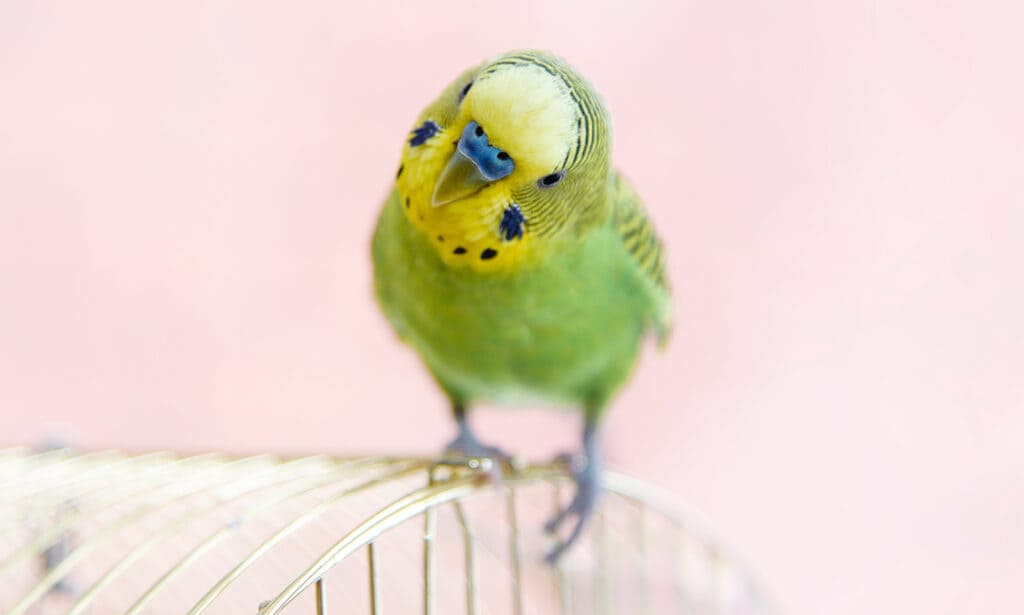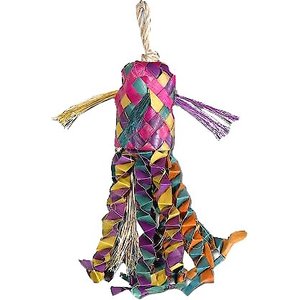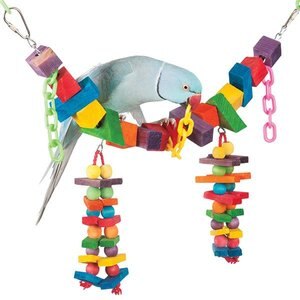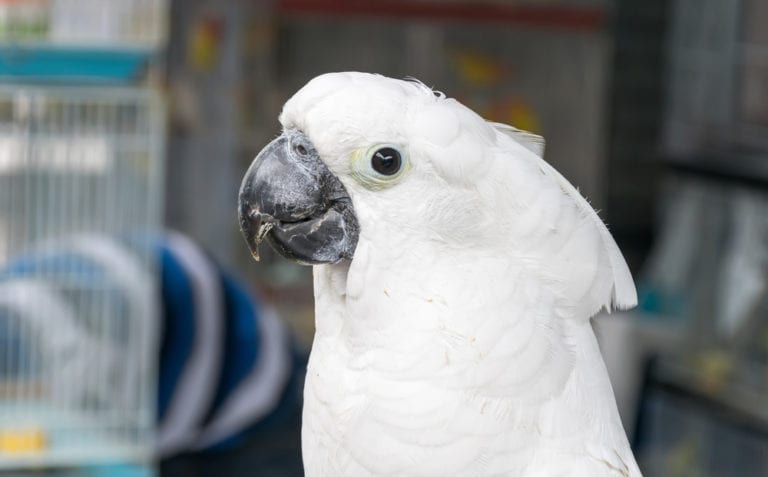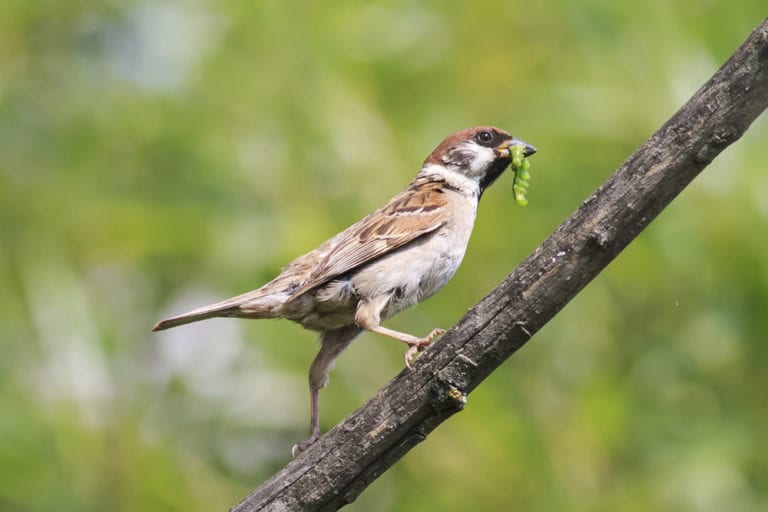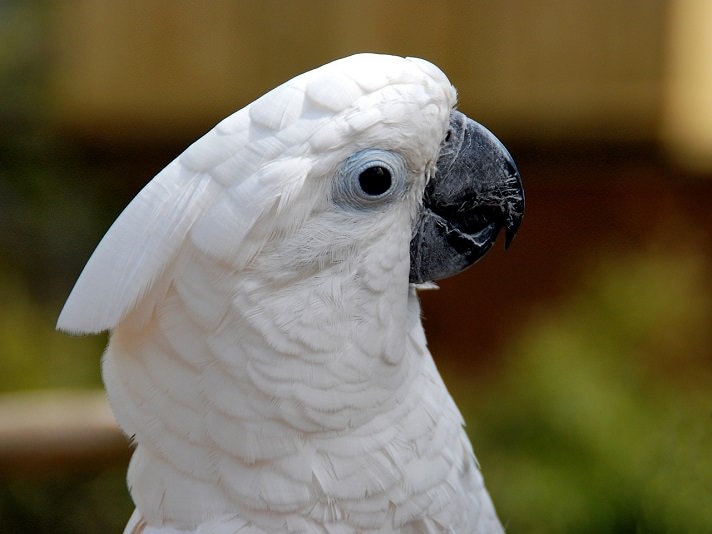As parrot parents, it’s no secret that we have unconditional love for our feathery friends. However, it can be discouraging if we feel the love isn’t reciprocated, or worse—that our pets actually might not like us. However, what may be perceived as signs your bird hates you can have a deeper meaning beyond what feels like “hate.”
We spoke with avian experts on bird body language and its meanings, reasons why a parrot might dislike someone and how to make your bird love you.
In This Guide:
6 Signs Your Bird “Hates” You
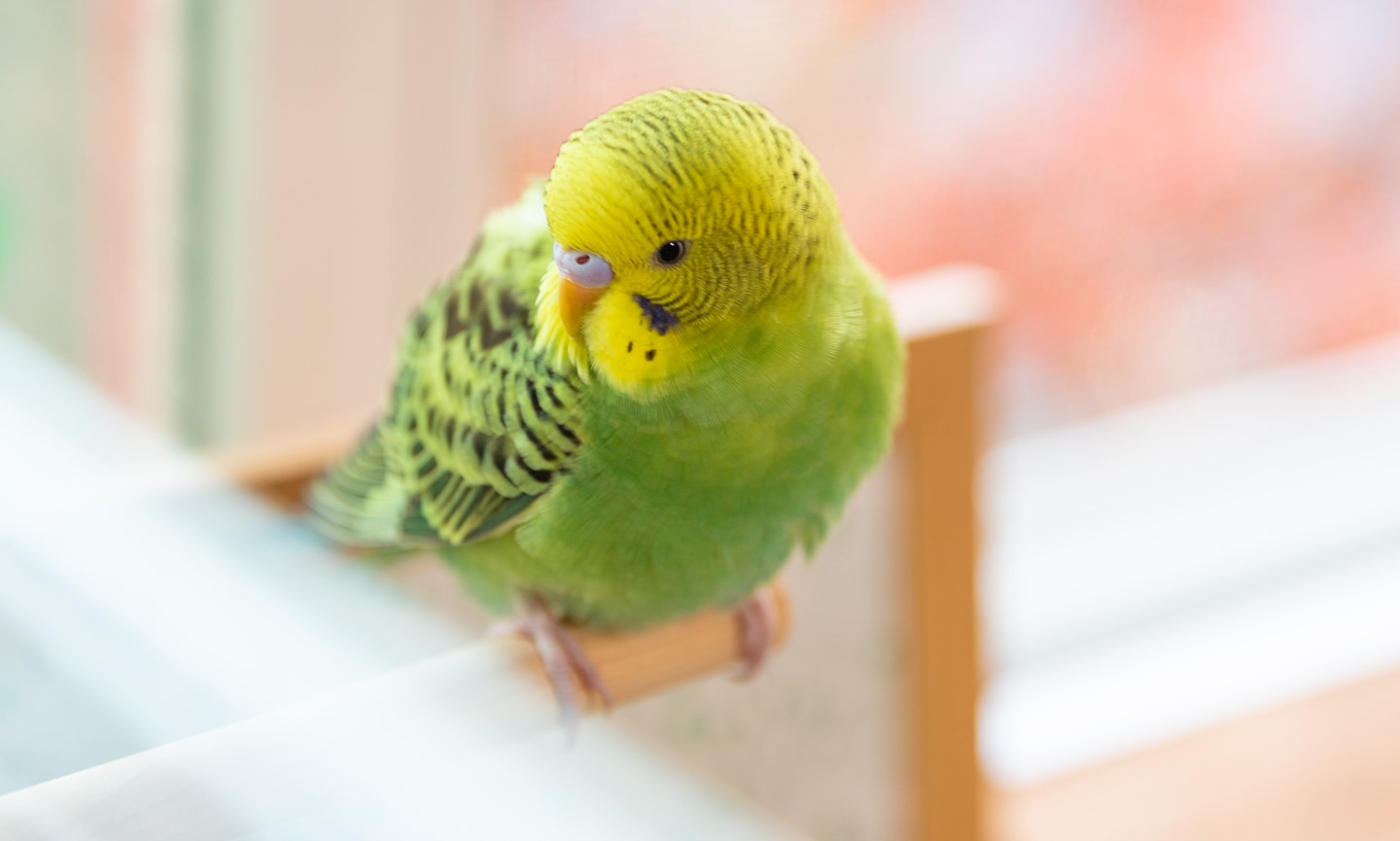
Does it seem like your bird wants nothing to do with you? Or has unexpectedly become mean?
Birds can often be misunderstood. Though it can be difficult to not take what feels like them disliking us personally, it’s important that we check for signs of stress, fear, boredom and illness.
Here are six signs to watch for:
1Staying Immobile or Hiding
Most pet birds are prey in the wild, says Dr. Laurence Labrecque, DVM, a veterinarian at Exotic Animal Veterinary Center in Pasadena, California. If you’re trying to approach your bird and they stay completely immobile or hide behind objects or toys, they may be doing so out of fear as to evade a perceived predator, she explains. Another possibility is that they may be trying to outsmart you and make it more challenging to be caught and forced to interact.
2Eye Pinning
Eye pinning, or eye flashing, is a controlled reflex where a parrot dilates and contracts their pupils quickly. Dr. Labrecque says they do this in reaction to something, usually causing excitement—whether it’s good or bad. Depending on the situation and a bird’s body language, it could mean they’re either excited to see their human and wanting to play or angry and about to bite. Some parrots will also pin their eyes as a form of courtship.
3Tail Fanning
Another sign of excitement in birds is flaring or fanning out their tail feathers. They may display this behavior to exhibit aggression by trying to make themselves look bigger and scarier, Dr. Labrecque says.
4Stretching Out or Raising Wings
Much like tail fanning, Dr. Labrecque says a bird will stretch or raise their wings to make themselves look more intimidating. They may do this just before biting.
5Moving or Flying Away From You
“Moving or flying away from you when you are asking them to step up is an obvious sign that the bird is trying to avoid any interaction,” Dr. Labrecque says. A bird will usually do this first, and if this isn’t respected and they’re cornered, their next action may be to bite or lunge.
This response could be because they either fear you or something unfamiliar that’s close to you, which could be anything as minute as your nail polish or an ant, says Karen Lee Allen, “The Parrot Lady,” Certified Avian Specialist (CAS) of the Pet Advocacy Network and owner of Birds & More in Lawndale, California.
6Hissing or Growling
Like cats, parrots can hiss or growl upon being approached, indicating they’d prefer to be left alone.
“Excited birds are more at risk of biting, and it is preferable to wait until they have calmed down before attempting to socialize with them,” Dr. Labrecque says. “If a bird displays these clues and you continue to approach them, they may bite because their boundaries were pushed too far.”
What Causes a Bird Not to Like Someone?
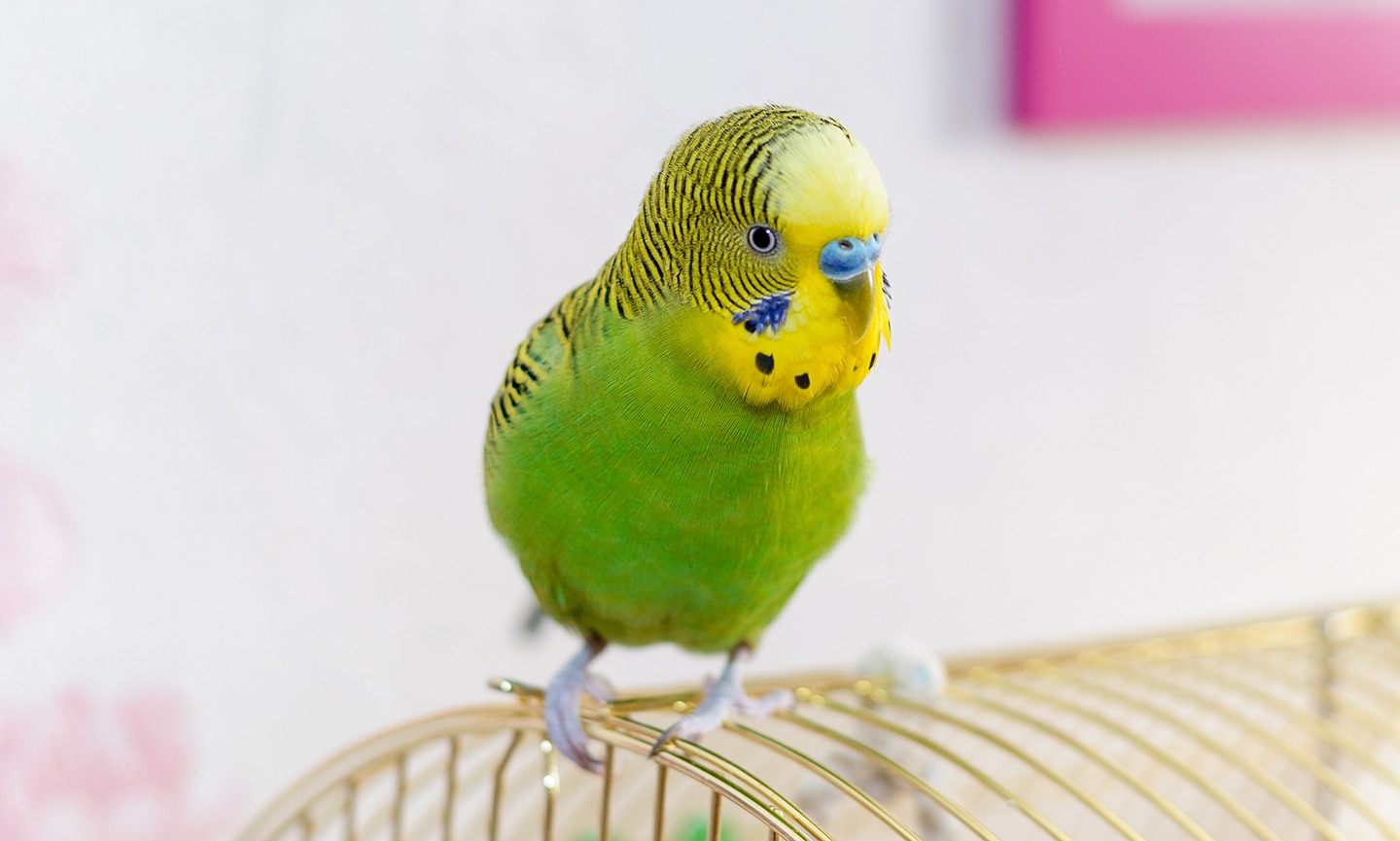
There are several reasons why a bird may seem to dislike someone. Dr. Labrecque says because a lot of birds live in flocks, they’re extremely social animals and are used to communicating with conspecifics (members of the same species) and are good at reading social cues.
“They expect to be treated with respect, whether it is by other birds or human beings,” she adds.
Below are a few possible reasons why a bird might not like someone:
Misinterpreting Bird Behavior
“A lot of humans are not good at ‘reading birds,’” Dr. Labrecque says. “They might wrongly interpret their behavior and consistently ignore the bird’s warnings, which will lead to a bite.”
If a bird feels they’re not treated with respect, they may remember your interaction as being negative and perceive it as mistreatment. Allen says some birds have a minimum intelligence range of a 3-5 year old child—often much higher—and a fantastic memory.
“Remember, birds are very smart, and if someone doesn’t play by their rules, they may well hold a grudge,” she says.
Not Being Their Bonded Person
Similar to other pets, Dr. Labrecque says some birds are a “one person” bird and will only bond with people from one gender or with a single human in the household. This, she explains, isn’t an abnormal behavior since a lot of bird species have one lifelong mate.
Allen echoes Dr. Labrecque’s sentiments, adding that parrots may act hostile toward anyone they feel is coming between them and their special person.
Having a Preference for Particular Personalities
Some birds tend to get along with personalities that matches their own.
“For example, I’m a rather loud and colorful person, and Amazon parrots and macaws tend to like me,” Dr. Labrecque says. “But on a general basis, African grey parrots despise me.”
Hormonal Changes
If your bird was fond of you and suddenly seems to dislike you, it could be hormone-related. Baby birds who started off as being friendly may become aggressive once they’ve reached sexual maturity and have become hormonal, Dr. Labrecque says.
Change in Environment
Some birds especially love a predictable routine. Allen says birds can absolutely become uncomfortable or frightened if something in their environment—or even with you—changes.
The following may cause a bird stress, according to Allen:
- A new cage
- Change in the cage’s location (For example, being placed in front of a big window where they can see other birds flying free can cause them to become disturbed or frightened.)
- New furniture
- A visiting friend they feel is imposing
- A new baby in the house
- Workers in the house
- A new housekeeper
- A new toy (!)
“Take everything slowly and with care—and lots of love—and you will have a friend for life,” Allen says.
Illness
Does your bird seem unhappy or uninterested in spending time with you? This change in behavior may be due to illness.
Dr. Labrecque says birds who are sick or in pain might no longer want to come out of their enclosure to interact and may even start showing signs of aggression if handled. “Most pet birds are prey species and will try to hide their pain or illness until they no longer have the energy to do so,” she says.
Dr. Labrecque shares an example of how an arthritic parrot whose feet and legs hurt may not want to come out of their cage to play and might decide to bite their pet parent who insists on it. Similarly, a bird with heart disease, which is quite common in parrots, can develop an intolerance to exercise due to the disease and may want to stay in their cage instead of coming out and flying around, she says.
If you suspect your bird may have an illness, it’s always best to schedule a vet visit for a health exam.
How To Make Your Bird Love You
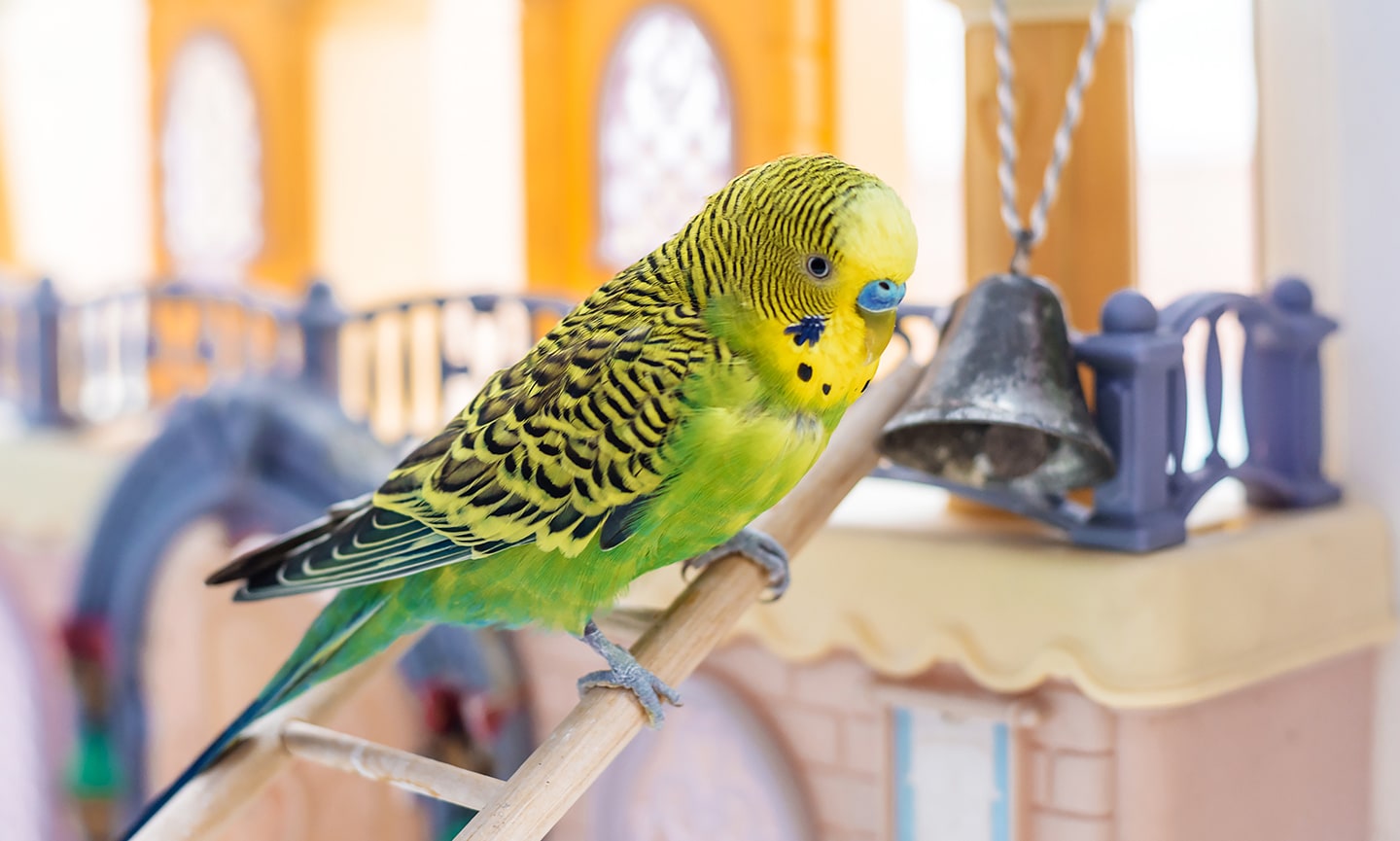
Forming a strong bond with your feathered friend requires building trust through lots of love, time and patience.
Here are expert-recommended ways to make your bird love you as much as their favorite chew toy:
Treat Your Bird With Respect
This is key first and foremost, Dr. Labrecque says. When developing a relationship with your bird, it’s important that it’s on their terms, as opposed to ours. This means respecting their boundaries and not forcing interactions, which will help them feel safe, build trust and, ultimately, strengthen your bond.
“Birds are inquisitive and curious,” she says. “If they want to interact with you, they will usually show interest and come closer to you. Some might even start talking to you.”
Allen recommends showing appreciation to let your bird know they make you happy, praising them and giving them toys and treats to show your love.
Be Very Observant of Your Bird’s Behavior—and Your Own!
Birds give cues to let us know how they’re feeling. Knowing what to look for and how to understand their body language and vocalizations can make a world of difference in your interactions with your BFF.
“Like any child, they show excitement,” Allen says. “You will get to know your bird as you grow together and will truly be the best judge of what he does and doesn’t like.”
Signs of a happy bird include:
- Head bobbing or putting their head down for tickles
- Singing
- Relaxed body language
- Talking
- Whistling
- Purring
- Beak clicking
Additionally, it’s just as important to be aware of your own behaviors and body language, especially if you’re feeling stressed, frustrated or sad. Allen says birds are so tuned in to our overall emotions and behaviors that they can react the same way.
“There are a lot of books, DVDs and online resources on bird behavior, which can be helpful if you have a bird or are planning to get one,” Dr. Labrecque says.
If you’re unsure of how to interpret certain behaviors or their behavior in general, she recommends reaching out to an avian vet or a veterinary behaviorist with expertise in exotic species.
Be Gentle but Confident When You Interact With a Bird
Fast, sudden movements can (understandably) frighten a bird. When interacting with your bird, Allen says it’s best to approach them quietly and speak to them gently and often. Be sure to always tell them you love them and that they’re safe.
“The key word is ‘gentle,’” she says. “Spend quality time with your bird. Ten positive minutes at a time is much better than a half hour of chaos.”
If your bird has a fear of hands, Dr. Labrecque recommends offering them to stand on a stick or perch. If you have a young, friendly bird, she says to try to have them interact with all kinds of people to socialize them early.
Act Toward Your Bird as a Flock Member
Birds can interpret particular behaviors, such as petting them on their belly or back and kissing or feeding them with your mouth, as those of a sexual partner, Dr. Labrecque says. Weird? Yes! But it could lead to jealousy and even sexually frustrated behavior in your bird.
Instead, you’ll want to interact with your bird as a flock member. This includes:
- Petting your bird’s head
- Scratching their head or ear feathers
- Breaking down the keratin sheath covering pin feathers, the new feathers growing out (gently, of course)
Offer a Stimulating and Vibrant Environment
With as smart as these feathery kids are, they need mental stimulation to prevent boredom and depression, Allen says.
To enrich your bird’s mental and physical well-being, try these tips from Dr. Labrecque and Allen:
- Keep them in an area of the house where they can interact with household members throughout the day instead of alone in a room. This can help prevent behavioral issues.
- Provide them with a variety of toys. Birds will be thrilled to play and put their busy mind to work with plenty of foraging, shredding and puzzle toys.
- Train them to work for their food. Labrecque says vets strongly recommend that all bird parents do captive foraging. The idea is to simulate a more natural foraging behavior that birds would exhibit in the wild, where they spend time searching, manipulating objects and solving problems to find their food. According to Dr. Labrecque, captive foraging can be as easy as offering a whole nut instead of a shelled one. Once a bird is used to the concept of foraging and has been consistently successful at getting their food, a pet parent can work their way up to more difficult foraging devices or puzzle feeders. Studies have shown that birds are good at solving problems to get their food rather than having it readily offered to them, she says. “This will help keep them busy and improve their confidence.”
- Before leaving your home, put on an engaging program for them to watch and listen to. When Allen goes out, she leaves the TV on a talk station, cartoon or “Sesame Street”–like show for her birds. While putting on music also works, she says the interaction and movement on shows works best and is the most interesting and fun for them. (She advises against leaving on the Animal Planet channel, as she’s noticed that birds don’t like the violence featured on some of the shows.)
- Spend time training them to be groomed or medicated. In cases where a bird requires grooming or needs medication, training them to tolerate certain routines, such as having their nails filed, being wrapped in a towel, or drinking from a syringe, can be helpful to minimize stress, Dr. Labrecque says. This can also be an opportunity to help your bird bond with different family members, she adds.
Get Them a Friend
In some cases, getting your bird a companion is worth considering if they’re healthy and already get enough mental stimulation yet still seem generally unhappy. Depending on the species, some, like budgies and lovebirds, may prefer to be in pairs. If you’re thinking about adopting a new bird for them to bond with, it’s best if they’re the same species and consider the care involved for two feathery friends.
Take Your Bird for Annual Veterinary Exams
Yearly exams are a great way to keep your best friend healthy and happy. If you have any concerns about your bird’s health or notice a change in their behavior, consult a vet right away. Your vet will be able to determine if there’s an underlying condition and develop a customized treatment plan.
More about caring for birds:
Share:
